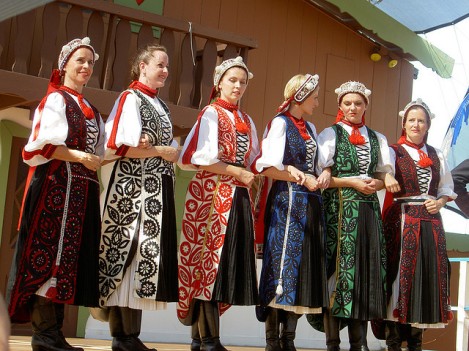Our understanding of history is based on what happened in England and France, with an occasional detour to Spain, Germany, or Italy. We think of the First World War as having begun in 1914 and ended in 1918, and the Second World War as having begun in 1939 and ended in 1945. That those were merely the dates in which Western Europe and the United States were involved somehow doesn’t make it into our textbooks, let alone our consciousness.
We are so inundated with books and films about the Second World War that we forget that the whole Western European involvement was only a sideshow. Once Hitler had begun Operation Barbarossa and invaded Russia in June 1941, it was the beginning of the end for his dreams of a Thousand Year Reich. Things looked up for a while for the Panzer invaders, but soon they were dying by the millions—after having caused millions of civilian and military casualties in the Ukraine and Belarus.
Also, long before 1939, the Japanese had invaded Manchuria and Southern China, and the Germans had marched into Austria and Czechoslovakia. That wasn’t war?
Perhaps because I am increasingly conscious of my Hungarian roots, I prefer to not concentrate on the usual Western sequence of Hundred Years War, Crusades, Magna Carta, Renaissance, Reformation, Thirty Years War, Enlightenment, French Revolution, Napoleon, Metternich, and so on. There was also history occurring when Hungary was conquered by Suleiman the Magnificent and his Janissaries at the battle of Mohacs in 1526, when Poland was partitioned three times in the eighteenth century, when two Balkan Wars were fought in 1912-1913 leading up to the “main event” after Archduke Ferdinand was assassinated in Sarajevo, when Greece invaded Turkey in the early 1920s and was soundly defeated by Kemal Ataturk, resulting in thousands of Greek refugees being forced out of Smyrna and the rest of Ionia.
There is ever so much more: the war between the Reds and the Whites after the October Revolution of 1917, Stalin’s purges of the late 1930s, the Hungarian Revolution of 1956, the brave Polish resistance to Communist rule under the leadership of men like Adam Michnik and Lech Walesa, and Tito’s repudiation of Stalin.
The next time you are tempted to read a history book, remember that there are probably large lacunae in your knowledge. Instead of another book on the cockamamie British royalty, read Robert D. Kaplan’s Balkan Ghosts or Antony Beevor’s Stalingrad or The Fall of Berlin. Read poetry by Czeslaw Milosz, Russian novels like Vasili Grossman’s Life and Fate, or the journalism of the Hungarian Gyula Krúdy in Krúdy’s Chronicles.
But mostly, recognize that there is a whole world out there with which you may not be acquainted, but which will influence the course of history to come for generations to come.


You must be logged in to post a comment.